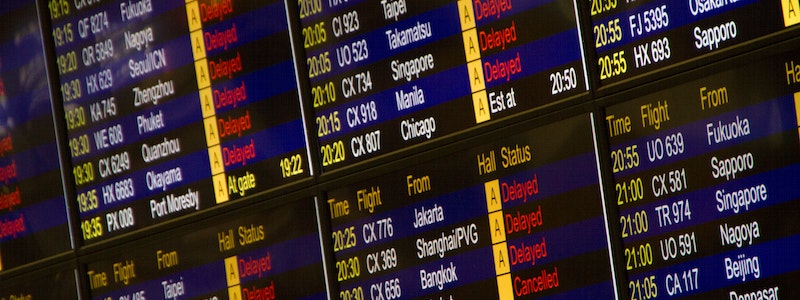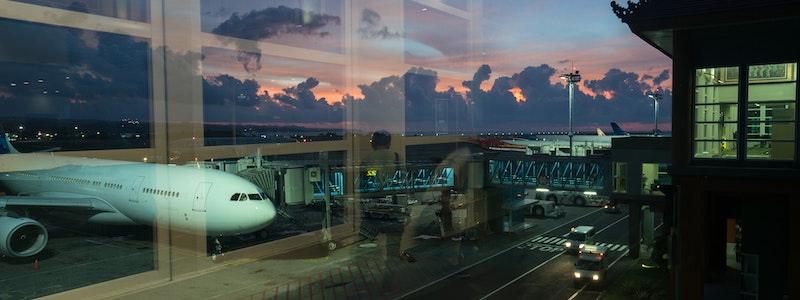
With 25 years of international travel and around 250 flights, I have a lot of experience dealing with jetlag. While It’s never been much of an issue flying East to West, adjusting to a new time zone when flying West to East comes with challenges.
Over the years, I’ve tried several tricks and techniques to avoid nasty jetlag, and while some have had little impact, I now have a set of rules I strictly follow. Here are my seven simple steps to avoid that West to East jetlag.
1. Select the right flight

The fight against jetlag starts when you book your flight. I’ve always found it’s always much easier to adjust when arriving at my destination around the late afternoon/early evening. I’ve never been a great sleeper on flights, so I always feel tired and groggy when I arrive—getting to my room and heading to bed soon after is the best start for avoiding nasty jetlag.
While these rules are generally for West to East travel, this one works well for both directions. Don’t be fooled into thinking this alone avoids jetlag, but it starts you off on the right foot.
2. The importance of prep
If you know you are heading on a long flight and crossing multiple time zones, you must start preparing a few days ahead.
If I’m heading East on an 8+ hour flight, crossing four or more time zones, I will start prepping at least three days in advance. By prep, I mean moving my dinner and bedtime forward an hour each day. For every two hours of time zone you are crossing, I’d recommend doing this an extra day in advance.
While this won’t get you in exactly the right time zone before your flight, it certainly takes the edge off and plays a big part in adjusting quickly and smoothly.
3. Coffee Control

I’ve been guilty of almost overdosing on coffee to beat jetlag. I would often knock bag an espresso or two to recover from a long flight. Your coffee intake is another thing you need to start changing during the days leading up to the flight.
My regular intake of coffee is on in the morning around 8 AM, occasionally around 11 AM, and a final coffee mid-afternoon (never after 5 PM). When I’m approaching a long-haul flight, I adjust my coffee intake as follows:
- Two days before your flight, no coffee after 3 PM.
- One day before your flight, no coffee after midday.
- Day of the flight/during your flight, avoid coffee altogether.
Caffeine has a powerful influence on your body clock; it must be limited to prepare your body for the new time zone.
4. Stay hydrated
Dehydration can play a significant part in worsening your jetlag symptoms. Flight cabins have low humidity, which increases dehydration, so it’s even more important to keep on top of your hydration habits during a long-haul flight. You should drink at least 0.25 litres for every hour on the plane, so on an 8-hour flight, that’s at least 2 litres.
I usually have a one-ltr flask with me, and I’ll aim to drink a litre pre-flight and another ltr between landing and heading to bed. If you follow this rule, another tip is to book an aisle seat, as you may be going to pee several times (but that’s a good sign).
5. Limit your naps

If you arrive from an 8+ hour West to East flight in the morning, staying awake until bedtime will be challenging. Taking a nap during those first days can be dangerous. Napping for too long or too late in the day will feed the jetlag.
Unless you are a regular napper, and it’s part of your everyday routine, I would try to avoid naps until you’ve got your body clock right. That said, sometimes you are just pooped and can’t keep your eyes open. If I can’t resist the nap, I’ll set the alarm and try to limit it to 30–40 mins and avoid napping after 4 PM. Sleeping much longer or late is setting yourself up for failure.
6. Maximise your sun time
Waking up with the sun is the most natural way to adjust your circadian rhythm and get on track with your new time zone. If I have trouble getting to sleep or have a restless night, I’ll allow myself 2–3 extra hours in bed to adjust. But it’s essential to limit the hours of sun you get.
Assuming I’m in a location where the sun is setting and rising at reasonable hours (7–10 PM and 5–8 AM), on those first nights in a new time zone, I’ll often leave a gap in the curtains to let the morning light through and help me adjust. That also means not going to bed too early and waiting until at least after sundown. Using natural sunlight is almost like a cheat code for resetting your body clock.
7. Don’t panic

While these rules work for me almost every time, I’ve still had odd occasions where things don’t go to plan, and I can’t follow them strictly enough. When that happens, and I arrive in my new location unable to sleep at night, or worse, I suddenly wake up at 3 AM and feel wide awake; it’s essential not to panic.
Don’t fixate on the fact you can’t sleep. Stay calm and trust that you’ll get adjusted soon enough. If you can’t sleep well during those first nights, try to stay in bed. Keep the lights low, and don’t stare at a screen. If you need entertainment, try reading or close your eyes and listen to a podcast.
Stick to the rules and stay cal
Note: I avoid medication to aid sleep (sleeping pills or melatonin). It can work for some, but for me, it tends to make me drowsy and mess with my sleep the following days. Rather than use medication, I have invested in a high-quality blackout eye mask and some good noise-cancelling headphones, and I always carry ear putty. These items help me sleep on the flight, and I’ll try to avoid them once I arrive.




